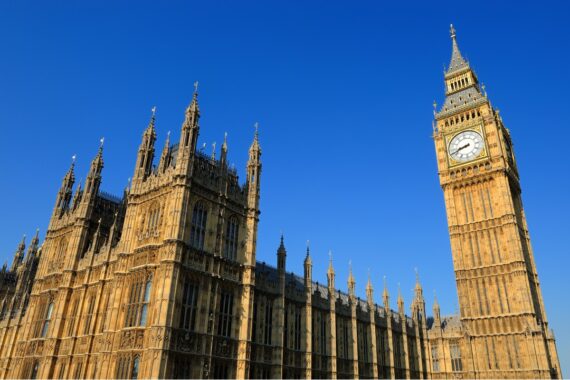Tory MPs reject workforce transparency amendment in Health Bill vote

MPs have rejected a proposed amendment to the Health and Care Bill that would have mandated greater transparency on workforce, in a move condemned by the BMA and RCGP.
The amendment, which would have ensured the Government published independent reports on workforce numbers every two years, was voted through by the House of Lords earlier this month and was backed by around 100 organisations, including the NHS Confederation.
The reports would have been accompanied by an ‘independently verified assessment’ of current workforce numbers and ‘the projected workforce supply for the following five, 10 and 20 years’.
But during the final consideration of amendments last night, 243 Conservative MPs voted the idea down, while other parties unanimously voted in favour, along with health select committee chair Jeremy Hunt (Conservative).
RCGP chair Professor Martin Marshall said the move was ‘extremely disappointing’.
He said: ‘This is a crucial missed opportunity to address historic poor workforce planning in the NHS that has led to the unrelenting pressure that GPs, our teams and colleagues across the health service are working under.
‘Over the last month more than 1,900 GPs wrote to their MP to outline why this amendment was so important for patient care and the sustainability of the NHS and to encourage them to support it. Today’s result in parliament has let down healthcare professionals working in general practice and the wider NHS.’
He added that although it is a ‘significant setback’, the vote will not ‘deter’ the College and other health organisations in their support for a larger NHS workforce.
BMA council deputy chair Dr David Wrigley said that ‘having a collective national picture of the health and care staff numbers needed now and into the future to meet demand’ was necessary for ‘underpinning an effective long-term workforce strategy, which has been so desperately needed in the NHS’.
He added that without it, ‘we simply do not have the necessary foundations to take long-term strategic decisions about funding, regional and speciality shortages and skills mix’.
Health Foundation director of policy Hugh Alderwick agreed that MPs had voted ‘the wrong way’.
He said: ‘We now hope that the House of Lords encourages the government to think again on these issues, and that the government remains open to compromise before the Bill is passed into law.’
MPs had previously voted against a similar amendment to the Bill proposed by former health secretary Jeremy Hunt.
The BMA said at the time that the Government had ‘squandered this opportunity to demonstrate a commitment to safe staffing in the NHS’.
It comes weeks after NHS Digital revealed that the overall number of staff vacancies in England has topped 110,000, increasing by more than 20,000 across 2021.
Meanwhile, in the previous stage of the Bill’s passing through Parliament, the House of Lords was not invited to take a decision on an amendment that had proposed GPs should be mandated to work in deprived areas.
Amendment 29 in full
(1) The Secretary of State must, at least once every two years, lay a report before Parliament describing the system in place for assessing and meeting the workforce needs of the health, social care and public health services in England.
(2) This report must include—
(a) an independently verified assessment of health, social care and public health workforce numbers, current at the time of publication, and the projected workforce supply for the following five, ten and 20 years; and
(b) an independently verified assessment of future health, social care and public health workforce numbers based on the projected health and care needs of the population for the following five, ten and 20 years, taking account of the Office for Budget Responsibility long-term fiscal projections.
(3) NHS England and Health Education England must assist in the preparation of a report under this section.
(4) The organisations listed in subsection (3) must consult health and care employers, providers, trade unions, Royal Colleges, universities and any other persons deemed necessary for the preparation of this report, taking full account of workforce intelligence, evidence and plans provided by local organisations and partners of integrated care boards.
- Voted in agreement: 167 MPs
- Voted in disagreement: 249 MPs
Sources: Parliament, TheyWorkForYou









